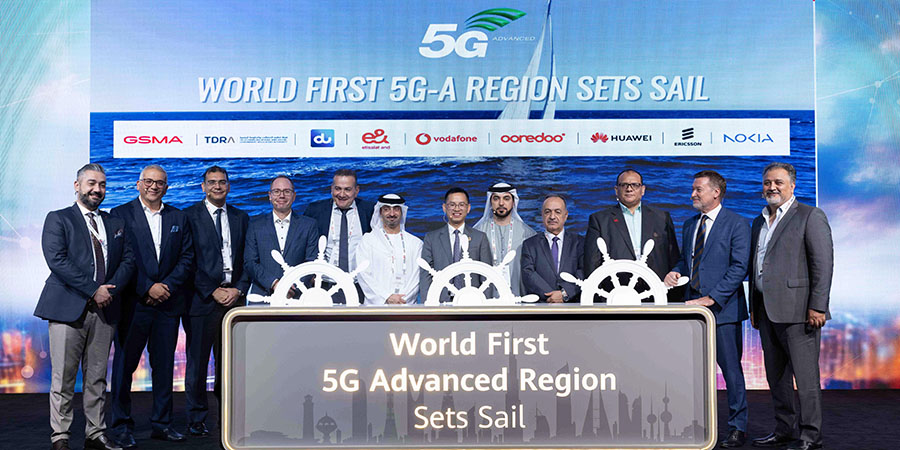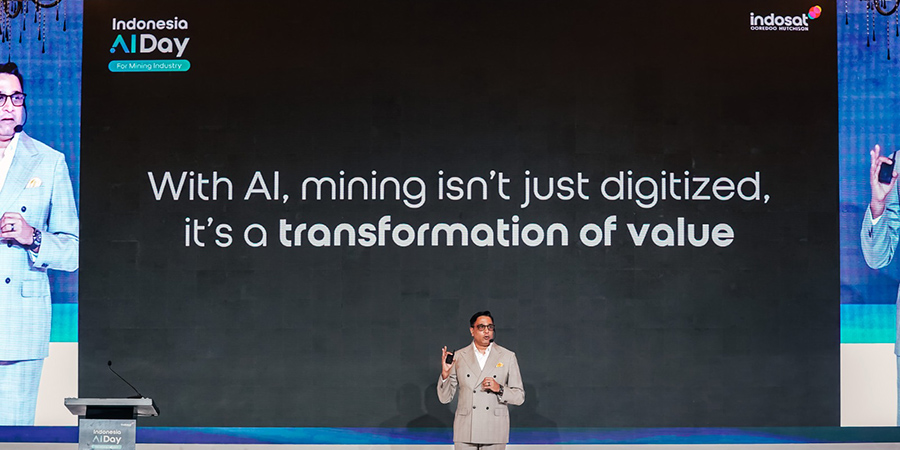The TRS-24 panel, titled ‘World First 5G-A Region Sets Sail,’ began with an opening speech by Toni Eid, Founder of Telecom Review Group, and CEO of Trace Media International, who highlighted the transformative role of 5G-Advanced (5G-A) within the 5G ecosystem.
The session focused on the immense potential of this cutting-edge technology, particularly its low latency and high-capacity bandwidth connectivity, as well as its synergies with artificial intelligence (AI).
The discussion featured the following leading experts from across the telecom industry:
- Fayez Abu Awad, Policy Director, MENA, GSMA
- Khalid Al Awadi, Manager, Broadcasting and Space Services, TDRA UAE
- Hasan Alshemeili, Head of Technology Planning, du
- Ayman Elnashar, VP of Technology Strategy, Architecture & Innovation, e&
- Ramy Boctor, Chief Technology Officer, Vodafone Qatar
- Stelios Savvides, Chief Technology Officer, Vodafone Oman
- Hicham Siblini, Chief Technology and Infrastructure Officer, Ooredoo Qatar
- Allen Tang, President of ICT Marketing & Solution Sales Dept., Huawei MECA
- Zoran Lazarevic, CTO, Ericsson MEA
- Mohamed Samir, VP Middle East Market, Nokia
The panel was moderated by Issam Eid, CMO for Africa, Levant, KSA & Qatar, Telecom Review Group.
Fostering Collaboration and Open Platforms
Awad stressed the importance of industry collaboration, open API platforms such as the GSMA Open Gateway, and creating use cases for economic development. He also emphasized the mobile industry’s role in fostering cross-sector partnerships. By leveraging these platforms, the mobile industry can create innovative use cases that drive economic development and benefit society at large.
Dr. Al Awadi added that stakeholder collaboration is essential to achieving meaningful outcomes, particularly in areas like expanding spectrum for mobile services.
Innovative Use Cases and Industry-Specific Applications
Alshemeili highlighted du’s impressive milestone of achieving 99% outdoor 5G coverage in the UAE. He also reiterated the importance of collaboration in advancing the development and deployment of 5G-Advanced technologies.
Dr Elnashar presented e&’s advancements in AI-driven applications and 5G-Advanced innovation, including record-breaking speeds of 62 Gbps and over 1,000 AI-powered use cases enhancing network autonomy and customer experience. These advancements are enabling greater network autonomy and improving customer experiences.
Savvides explored the potential of 5G-Advanced to enable differentiated services like ultra-low latency for gaming, mission-critical applications, and IoT solutions. He also pointed out the increasing role of mobile private networks, especially in industries like oil and gas, to enhance operational reliability and efficiency.
Smart Cities and Automation
Boctor reinforced this sentiment, focusing on the dynamic nature of network traffic and the necessity of speed and adaptability in delivering services to meet evolving market demands.
Siblini discussed the role of automation in optimizing processes and the realization of smart cities. He framed 5G-Advanced as a long-term transformative journey that will fundamentally reshape urban living and operational efficiency.
Advance the maturity of industry ecosystem and accelerate 5G-A business monetization
Tang discussed cooperating with all parties to accelerate the maturity of the 5G-A industry ecosystem, innovate new experiences, monetize business, and provide advanced technical solutions for transforming the global digital economy and driving industry upgrade. He emphasized the urgent need for building an intelligent architecture for the development of 5G-Advanced for a brighter digital future.
Challenges in Monetization and Cost Optimization
Zoran Lazarevic highlighted the challenges of monetizing 5G-Advanced, emphasizing the need for collaboration between regional operators and vendors to adapt business models and predict application needs.
Samir suggested cost-effective solutions like RedCap and integrating AI-driven automation to streamline business models and enhance consumer experiences, ensuring that 5G-Advanced remains accessible and profitable for operators.
5G-A Launch Ceremony
The event concluded with a launch ceremony celebrating the joint efforts of regulators, operators, and vendors, and in positioning the Middle East as a global leader in 5G-Advanced technology.
As 5G-Advanced continues to evolve, it is clear that industry collaboration, technological innovation, and a focus on use cases are critical to unlock its full potential. From enabling smart cities to revolutionizing industries like gaming and oil and gas, the possibilities are vast. However, challenges such as monetization and infrastructure development must be addressed collaboratively. With concerted efforts, the vision of a 10-Giga Society and beyond can become a reality, driving economic growth and societal progress.
Also Read: 5G-A Related Articles
Huawei Introduces AI-Driven F5.5G All-Optical Network
du and Huawei Collaborate to Advance 5.5G Journey
Huawei: Bridging 5G Excellence and 5.5G Leadership in the AI Era







